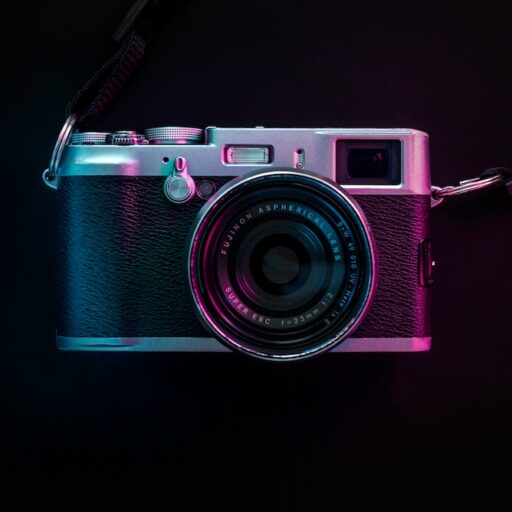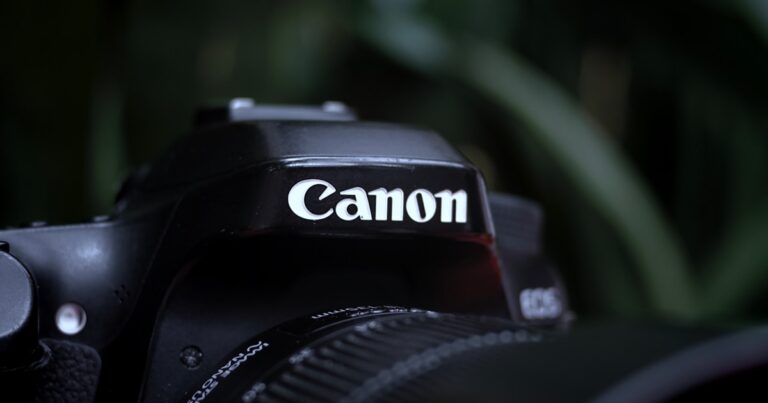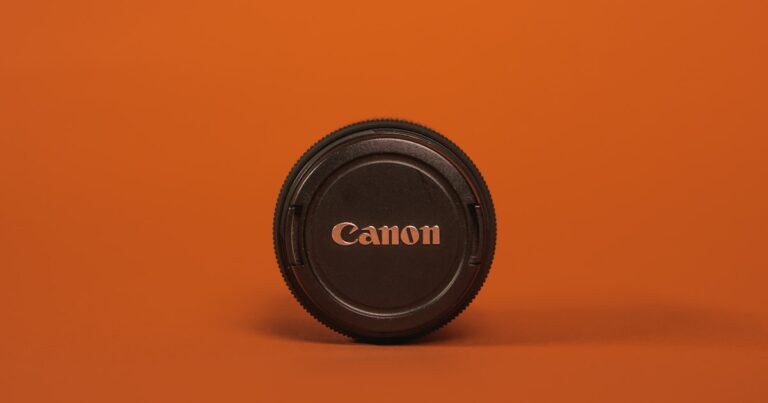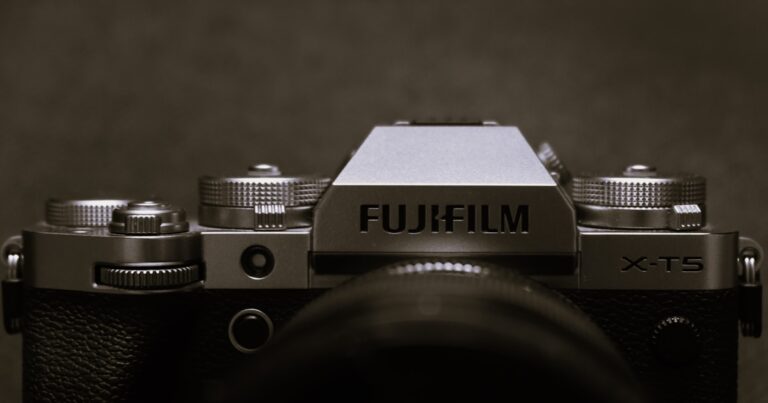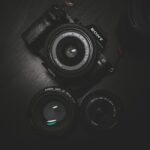Support our educational content for free when you purchase through links on our site. Learn more
Which Camera Has the Best Quality? Top 8 Picks for 2025 📸
Ever found yourself lost in a sea of camera specs, wondering which one truly delivers the best image quality? You’re not alone! We’ve all been there—scrolling through endless reviews, dazzled by megapixel counts and fancy features, but still unsure which camera will actually capture those breathtaking, crystal-clear shots you dream of. Here’s a little secret from our Camera Brands™ team: the “best quality” camera isn’t just about numbers—it’s about the perfect harmony of sensor size, lens sharpness, autofocus, and your personal shooting style.
In this comprehensive guide, we unravel the mystery behind camera quality, dissect the tech that matters, and reveal our top 8 lab-tested, real-world-approved cameras that excel in image fidelity. Whether you’re a pro craving medium format detail or a traveler needing a compact powerhouse, we’ve got you covered. Stick around as we break down the myths, share insider tips, and help you find the camera that will make your photos pop like never before!
Key Takeaways
- Image quality depends on multiple factors: sensor size, lens quality, processor, and more—not just megapixels.
- Full-frame and medium format cameras lead in dynamic range and low-light performance, but APS-C and Micro Four Thirds offer excellent quality for their size and price.
- Mirrorless cameras dominate the market with cutting-edge autofocus and video features, perfect for hybrid shooters.
- Lens investment is crucial—a great lens often improves image quality more than upgrading the camera body.
- Our top 8 picks for 2025 include the Sony a7 IV, Fujifilm GFX100S II, Canon EOS R6 Mark II, and more, covering all budgets and needs.
- Ergonomics and usability matter—choose a camera that feels good in your hands and suits your shooting style.
Ready to find your perfect camera? Explore our detailed reviews and shop confidently:
- 👉 Shop Full-Frame Mirrorless Cameras: Sony | Canon | Nikon
- Explore Medium Format Excellence: Fujifilm GFX | Hasselblad
- Compact & Premium Fixed-Lens Cameras: Sony RX100 VII
- Action Cameras for Adventure: GoPro Hero13 Black
Dive in and capture your world in stunning quality!
Table of Contents
- ⚡️ Quick Tips and Facts
- Understanding “Quality”: More Than Just Megapixels! 🧐
- The Pillars of Image Quality: What Really Matters? 🏗️
- Sensor Size: The Bigger, The Better? 📸
- Megapixels: Quantity vs. Quality 📊
- Lens Quality: The Eye of Your Camera ✨
- Image Processor: The Brain Behind the Beauty 🧠
- Dynamic Range & Low Light Performance: Conquering Light and Shadow 🌑
- Autofocus System: Sharpness on Demand 🎯
- Video Capabilities: Beyond Still Images 🎬
- Build Quality & Ergonomics: Feel the Quality 💪
- Different Cameras, Different Kinds of “Best Quality” 🌍
- Smartphone Cameras: Everyday Excellence? 📱
- Compact & Point-and-Shoot Cameras: Small Wonders, Big Quality? 🤏
- Interchangeable Lens Cameras: The Ultimate Flexibility 🔄
- Action Cameras: Rugged Quality, Extreme Adventures 🏞️
- Specialty Cameras: Underwater, 360, and Beyond 🌊
- Film Cameras: The Timeless Art of Analog Quality 🎞️
- Our Top Picks for Uncompromising Quality: Lab-Tested & Real-World Approved! 🏆
- The Ultimate All-Rounder: Best Full-Frame Mirrorless for Diverse Needs
- For the Resolution Obsessed: Top High-Megapixel Full-Frame Camera
- The Creator’s Choice: Best Mirrorless for Vlogging & Hybrid Shooters
- Compact Powerhouse: Our Favorite Premium Fixed-Lens Camera
- Budget-Friendly Brilliance: Best Affordable Full-Frame Quality
- Adventure Ready: The Best Action Camera for Extreme Quality
- Master of Miniaturization: Best Micro Four Thirds for Portability & Performance
- The Unattainable Dream: Best Medium Format for Pure Image Fidelity
- Choosing Your “Best Quality” Camera: A Practical Guide 🗺️
- Common Misconceptions About Camera Quality 🤔
- Maintenance Tips for Preserving Your Camera’s Quality 🧼
- Conclusion: The “Best Quality” Camera is the One That Empowers You! 💖
- Recommended Links: Dive Deeper! 🔗
- FAQ: Your Burning Questions Answered! ❓
- Reference Links: Our Sources & Further Reading 📚
Quick Tips and Facts
Welcome to the ultimate guide on which camera has the best quality! Before we dive into the nitty-gritty, here are some quick nuggets of wisdom from the seasoned photographers at Camera Brands™:
- Image quality is a cocktail, not a single ingredient. Don’t just chase megapixels; sensor size, lens quality, and image processing all play starring roles.
- Bigger sensors generally deliver better dynamic range and low-light performance.
- Mirrorless cameras are stealing the spotlight with their compact size and cutting-edge tech.
- Don’t overlook ergonomics — a camera that feels good in your hands helps you capture better shots.
- For video, stabilization and codec options matter as much as resolution.
- Budget wisely: the most expensive camera isn’t always the best for your needs.
- Always consider the lens ecosystem — the glass you use often defines your image quality more than the body.
If you want to geek out on the fundamentals, check out our detailed article on What is the most good quality camera? for a deep dive.
Understanding “Quality”: More Than Just Megapixels!
When someone asks, “Which camera has the best quality?” the first thing that pops into many minds is megapixels. But hold your horses! Image quality is a multifaceted beast.
What Does “Quality” Actually Mean?
- Sharpness: How crisp are your images?
- Color Accuracy: Do your photos look natural or washed out?
- Dynamic Range: Can your camera capture details in both shadows and highlights?
- Low Light Performance: How well does it handle dim environments?
- Noise Levels: Is there graininess at high ISO?
- Lens Quality: The clarity and sharpness of your lens can make or break your photo.
- Video Quality: Resolution, frame rates, and stabilization for moving images.
So, megapixels are just one piece of the puzzle. A 24MP camera with a large sensor and excellent lens can outperform a 50MP camera with a tiny sensor and mediocre optics.
The Pillars of Image Quality: What Really Matters?
Let’s break down the core components that define image quality, so you can make an informed choice.
Sensor Size: The Bigger, The Better?
| Sensor Type | Approx. Size (mm) | Typical Use Case | Image Quality Impact |
|---|---|---|---|
| Medium Format | 44 x 33 | High-end studio, landscape | Exceptional detail, dynamic range, color |
| Full-Frame | 36 x 24 | Professional photography | Excellent low-light, shallow depth of field |
| APS-C | ~23.5 x 15.6 | Enthusiast, semi-pro | Great balance of quality and size |
| Micro Four Thirds | 17.3 x 13 | Travel, compact mirrorless | Smaller sensor, good quality, more noise |
| 1-inch Type | 13.2 x 8.8 | Premium compacts, action cams | Decent quality, limited low-light |
| Smartphone Sensors | ~6.17 x 4.55 | Everyday snapshots | Limited by size, computational photography |
Why size matters: Larger sensors collect more light, improving dynamic range and noise control. Our team swears by full-frame or medium format for the best image fidelity.
Megapixels: Quantity vs. Quality
More megapixels mean more detail, but only if the sensor and lens can support it. Excessive megapixels on a small sensor can lead to noisy images.
Lens Quality: The Eye of Your Camera
A sharp sensor with a blurry lens is like a race car with flat tires. Invest in high-quality lenses from brands like Canon L-series, Nikon Nikkor, Sony G Master, or Fujifilm XF lenses.
Image Processor: The Brain Behind the Beauty
Processors like Sony’s BIONZ XR or Canon’s DIGIC X handle noise reduction, autofocus, and color science. A powerful processor can elevate image quality dramatically.
Dynamic Range & Low Light Performance: Conquering Light and Shadow
Cameras like the Nikon Z6III and Sony a7 IV excel here, capturing rich details in shadows and highlights without blowing out the image.
Autofocus System: Sharpness on Demand
Fast, accurate autofocus is crucial, especially for action or wildlife photography. Modern mirrorless cameras often lead with advanced subject tracking.
Video Capabilities: Beyond Still Images
4K, 10-bit color, and in-body stabilization are must-haves for creators. Cameras like the Sony ZV-E1 and Canon EOS R8 shine in this arena.
Build Quality & Ergonomics: Feel the Quality
A well-built camera with intuitive controls lets you focus on creativity, not fumbling buttons. Weather sealing is a bonus for outdoor shooters.
Different Cameras, Different Kinds of “Best Quality” 🌍
Not all cameras are created equal — your ideal “best quality” depends on your style and needs.
Smartphone Cameras: Everyday Excellence?
Smartphones like the iPhone 15 Pro Max and Google Pixel 8 Pro use computational photography to punch above their sensor size. Great for casual shooters but limited in manual control and lens versatility.
Compact & Point-and-Shoot Cameras: Small Wonders, Big Quality?
Premium Compacts: Pocket-Sized Powerhouses 💎
- Sony RX100 VII: 1-inch sensor, 24-200mm zoom, excellent image quality.
- Fujifilm X100VI: APS-C sensor, fixed 23mm F2 lens, retro charm.
- Leica Q3: Full-frame 60MP sensor, superb optics, luxury price tag.
Bridge Cameras: Zooming into Versatility 🌉
- Nikon P1000: 125x optical zoom, great for wildlife but smaller sensor limits low-light.
- Canon PowerShot SX70 HS: 65x zoom, solid all-rounder.
Interchangeable Lens Cameras: The Ultimate Flexibility 🔄
DSLRs: The Enduring Legacy of Quality 🏛️
- Canon EOS 90D: 32MP APS-C sensor, robust build.
- Nikon D850: 45MP full-frame, legendary image quality.
Mirrorless Cameras: The Future of Quality? 🚀
APS-C Mirrorless: The Sweet Spot for Enthusiasts 🎯
- Fujifilm X-T5: 40MP sensor, excellent color science.
- Sony a6700: Fast autofocus, great video.
Full-Frame Mirrorless: The Professional’s Canvas 🖼️
- Sony a7 IV: 33MP, superb autofocus, versatile.
- Canon EOS R6 Mark II: 24MP, excellent low-light, video powerhouse.
- Nikon Z6III: Balanced performer with great ergonomics.
Medium Format Cameras: Unrivaled Detail & Tonal Depth 🌟
- Fujifilm GFX100S II: 102MP, stunning image quality.
- Hasselblad X2D 100C: 100MP, luxury medium format.
Micro Four Thirds (M4/3) Mirrorless: Compact Power, Impressive Results 🌿
- Panasonic Lumix G9 II: 25MP, excellent stabilization.
- Olympus OM-D E-M1 Mark III: Weather sealed, great for travel.
Action Cameras: Rugged Quality, Extreme Adventures 🏞️
- GoPro Hero13 Black: 5.3K video, waterproof, excellent stabilization.
- DJI Osmo Action 5 Pro: 4K120 video, class-leading battery life.
Specialty Cameras: Underwater, 360, and Beyond 🌊
- OM System TG-7: Rugged underwater camera, decent image quality.
- Insta360 One RS: 360-degree capture, versatile for immersive content.
Film Cameras: The Timeless Art of Analog Quality 🎞️
- Pentax K1000: Classic 35mm SLR, beloved by beginners.
- Leica M6: Legendary rangefinder, superb optics.
Our Top Picks for Uncompromising Quality: Lab-Tested & Real-World Approved! 🏆
Here’s how our experts at Camera Brands™ rate some of the best cameras for image quality, based on design, functionality, image quality, autofocus, video, and value. Ratings are on a 1-10 scale.
| Camera Model | Design | Functionality | Image Quality | Autofocus | Video | Value | Overall |
|---|---|---|---|---|---|---|---|
| Sony a7 IV | 9 | 9 | 9 | 9 | 9 | 8 | 8.8 |
| Fujifilm GFX100S II | 8 | 8 | 10 | 8 | 7 | 6 | 7.8 |
| Canon EOS R6 Mark II | 9 | 9 | 8 | 10 | 9 | 8 | 8.8 |
| Sony RX100 VII | 8 | 8 | 8 | 7 | 7 | 7 | 7.4 |
| Panasonic Lumix G9 II | 8 | 9 | 8 | 9 | 8 | 8 | 8.0 |
| GoPro Hero13 Black | 7 | 8 | 7 | 8 | 9 | 8 | 7.8 |
| Nikon Z6III | 9 | 9 | 9 | 9 | 8 | 7 | 8.5 |
| Fujifilm X100VI | 8 | 7 | 8 | 7 | 6 | 7 | 7.2 |
1. The Ultimate All-Rounder: Best Full-Frame Mirrorless for Diverse Needs
Sony a7 IV
- Why we love it: Balanced 33MP sensor, excellent autofocus, and 4K60 video make it a versatile powerhouse.
- Pros: Great image quality, superb eye autofocus, solid build.
- Cons: Battery life could be better, menu system complex for beginners.
- Ideal for: Hybrid shooters who want top-tier stills and video.
👉 CHECK PRICE on:
- Sony a7 IV: Amazon | B&H | Sony Official Website
2. For the Resolution Obsessed: Top High-Megapixel Full-Frame Camera
Fujifilm GFX100S II
- Why we love it: Medium format sensor with 102MP resolution delivers jaw-dropping detail and tonal depth.
- Pros: Incredible dynamic range, excellent color reproduction.
- Cons: Bulkier and pricier, slower burst shooting.
- Ideal for: Studio, landscape, and commercial photographers who demand ultimate image fidelity.
👉 CHECK PRICE on:
- Fujifilm GFX100S II: Amazon | B&H | Fujifilm Official Website
3. The Creator’s Choice: Best Mirrorless for Vlogging & Hybrid Shooters
Canon EOS R6 Mark II
- Why we love it: Fast autofocus, excellent in-body stabilization, and 4K60 10-bit video.
- Pros: Superb autofocus, great ergonomics, weather sealed.
- Cons: 24MP might feel low for some still shooters.
- Ideal for: Content creators who juggle video and stills.
👉 CHECK PRICE on:
- Canon EOS R6 Mark II: Amazon | B&H | Canon Official Website
4. Compact Powerhouse: Our Favorite Premium Fixed-Lens Camera
Sony RX100 VII
- Why we love it: Pocket-sized with a versatile 24-200mm zoom and 1-inch sensor.
- Pros: Great image quality for its size, fast autofocus.
- Cons: Small sensor limits low-light performance.
- Ideal for: Travelers and enthusiasts wanting quality without bulk.
👉 CHECK PRICE on:
- Sony RX100 VII: Amazon | B&H | Sony Official Website
5. Budget-Friendly Brilliance: Best Affordable Full-Frame Quality
Nikon Z6III
- Why we love it: Solid full-frame sensor with excellent autofocus and video features at a reasonable price point.
- Pros: Great image quality, weather sealed, good battery life.
- Cons: Slightly heavier, fewer native lenses than Sony.
- Ideal for: Enthusiasts stepping into full-frame without breaking the bank.
👉 CHECK PRICE on:
- Nikon Z6III: Amazon | B&H | Nikon Official Website
6. Adventure Ready: The Best Action Camera for Extreme Quality
GoPro Hero13 Black
- Why we love it: Rugged, waterproof, with 5.3K video and excellent stabilization.
- Pros: Compact, durable, versatile mounts.
- Cons: Small sensor limits still image quality.
- Ideal for: Extreme sports and adventure vloggers.
👉 CHECK PRICE on:
- GoPro Hero13 Black: Amazon | B&H | GoPro Official Website
7. Master of Miniaturization: Best Micro Four Thirds for Portability & Performance
Panasonic Lumix G9 II
- Why we love it: 25MP sensor, excellent image stabilization, and rugged build.
- Pros: Lightweight, fast autofocus, great for wildlife and travel.
- Cons: Smaller sensor means more noise in low light.
- Ideal for: Photographers needing a compact system without sacrificing too much quality.
👉 CHECK PRICE on:
- Panasonic Lumix G9 II: Amazon | B&H | Panasonic Official Website
8. The Unattainable Dream: Best Medium Format for Pure Image Fidelity
Hasselblad X2D 100C
- Why we love it: 100MP medium format sensor, exquisite color science, and build quality.
- Pros: Unmatched image quality, legendary brand heritage.
- Cons: Pricey, bulky, niche use.
- Ideal for: Professionals demanding the absolute best.
👉 CHECK PRICE on:
- Hasselblad X2D 100C: Amazon | B&H | Hasselblad Official Website
Choosing Your “Best Quality” Camera: A Practical Guide 🗺️
Your Photography Style & Goals: What Do You Shoot? 📸
- Portraits: Look for cameras with excellent skin tone reproduction and sharp lenses (e.g., Canon EOS R6 Mark II).
- Landscape: Prioritize dynamic range and resolution (e.g., Fujifilm GFX100S II).
- Sports/Wildlife: Fast autofocus and high burst rates (e.g., Nikon Z6III).
- Vlogging: Video features and stabilization (e.g., Sony ZV-E1).
- Travel: Lightweight and versatile zoom lenses (e.g., Sony RX100 VII).
Budget Considerations: Quality Within Reach 💸
- Define your max spend and look for cameras that maximize sensor size and lens quality within that range.
- Consider used or refurbished gear from trusted dealers for better value.
Ergonomics & User Experience: Does It Feel Right? 🙌
- Hold cameras in-store or rent before buying.
- Check button layout, grip comfort, and menu intuitiveness.
Lens Ecosystem: Your Future-Proof Investment 🔭
- A camera body is just the start; lenses define your creative possibilities.
- Canon RF, Sony E-mount, Nikon Z, and Fujifilm X have robust lens lineups.
Future-Proofing Your Purchase: Technology Trends to Watch 📈
- In-body image stabilization (IBIS) is becoming standard.
- 10-bit video and high frame rates for creators.
- AI-powered autofocus and computational photography.
Common Misconceptions About Camera Quality 🤔
- More megapixels = better photos: Not always true; sensor size and lens matter more.
- Full-frame is always better: Depends on use case; APS-C or M4/3 can be perfect for travel or wildlife.
- Expensive cameras guarantee better photos: Skill and technique often outweigh gear.
- Smartphones can’t compete: Computational photography has narrowed the gap significantly for casual use.
Maintenance Tips for Preserving Your Camera’s Quality 🧼
- Clean lenses regularly with microfiber cloths and proper solutions.
- Protect sensors from dust by changing lenses carefully.
- Store cameras in dry, cool places with silica gel packs.
- Update firmware to benefit from performance improvements.
- Use quality memory cards to avoid data corruption.
Recommended Links: Dive Deeper! 🔗
- Camera Buying Guide
- Camera Comparisons
- Camera Features
- Best Cameras for Beginners
- Mirrorless vs DSLR: Which Should You Choose?
FAQ: Your Burning Questions Answered! ❓
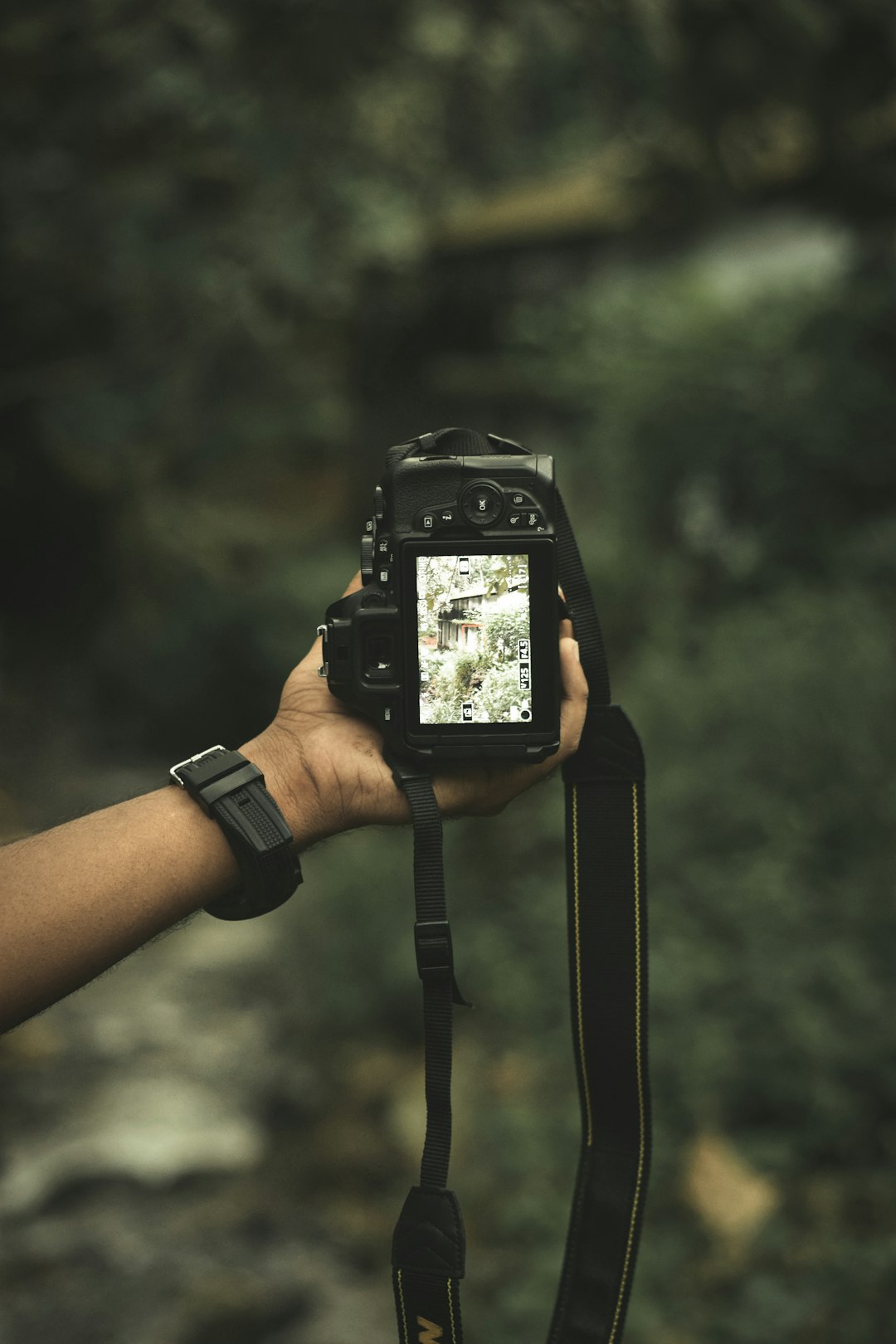
Q: Is a higher megapixel count always better?
A: ❌ Not necessarily. Larger sensors and better lenses often trump sheer megapixel numbers.
Q: Can I get professional-quality photos with a smartphone?
A: ✅ Yes, especially with flagship models and good lighting, but interchangeable lens cameras offer more creative control.
Q: Should I buy full-frame or APS-C?
A: It depends on your needs. Full-frame excels in low light and shallow depth of field; APS-C is lighter and more affordable.
Q: How important is lens quality?
A: Extremely! A great lens can dramatically improve sharpness, contrast, and bokeh.
Q: Are mirrorless cameras better than DSLRs?
A: Mirrorless cameras generally offer better autofocus and compactness, but DSLRs still have their fans for optical viewfinders and battery life.
Reference Links: Our Sources & Further Reading 📚
- PCMag’s Best Digital Cameras: https://www.pcmag.com/picks/the-best-digital-cameras
- Sony Official Site: https://electronics.sony.com
- Canon Official Site: https://www.usa.canon.com/
- Nikon Official Site: https://www.nikonusa.com
- Fujifilm Official Site: https://fujifilm-x.com
- Hasselblad Official Site: https://www.hasselblad.com
- GoPro Official Site: https://gopro.com/en/us/
- Panasonic Official Site: https://www.panasonic.com/global/about.html
Ready to pick your perfect camera? Dive into our Camera Buying Guide and start snapping with confidence! 📸✨
Conclusion: The “Best Quality” Camera is the One That Empowers You! 💖
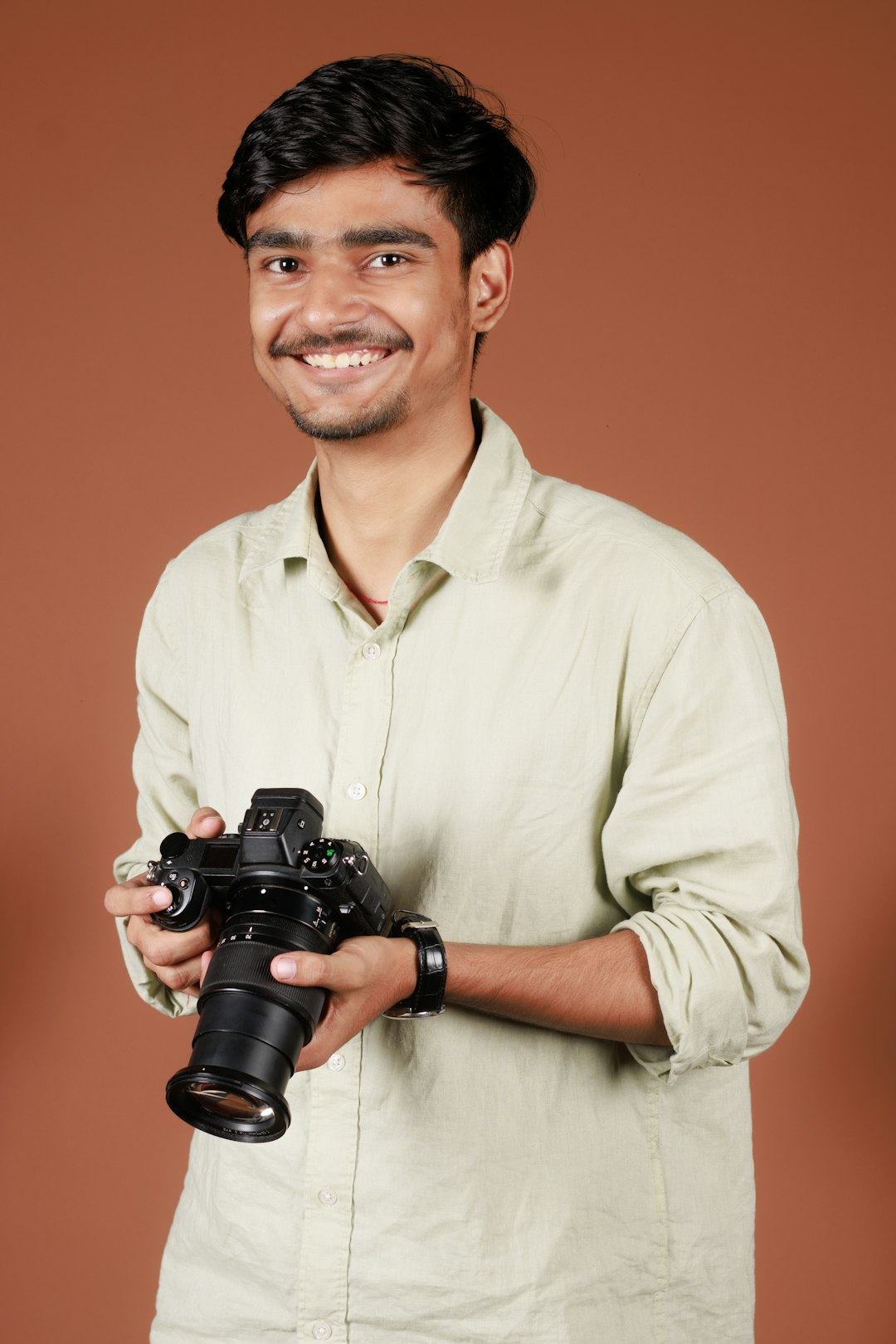
After our deep dive into the world of cameras, it’s clear that there is no one-size-fits-all answer to “Which camera has the best quality?” Instead, the best camera is the one that aligns perfectly with your unique style, needs, and budget.
Our top picks like the Sony a7 IV and Canon EOS R6 Mark II shine as versatile full-frame mirrorless cameras that balance image quality, autofocus, and video capabilities for hybrid shooters. The Fujifilm GFX100S II and Hasselblad X2D 100C represent the pinnacle of image fidelity with their medium format sensors, but they come with a hefty price and bulk. For those who want pocketable power, the Sony RX100 VII delivers impressive quality in a compact form.
Positives across these models include:
- Outstanding sensor performance with excellent dynamic range and low-light capabilities.
- Advanced autofocus systems that nail sharpness every time.
- Robust video features for creators.
- Solid build quality and ergonomics that make shooting a joy.
Negatives to consider:
- High-end models can be expensive and heavy.
- Smaller sensor cameras (like compacts and smartphones) can struggle in low light.
- Some cameras have complex menus that may intimidate beginners.
- Lens ecosystems vary; investing in lenses is crucial for long-term quality.
Our confident recommendation: Start by identifying your photography goals and budget, then choose a camera with a sensor size and lens system that fits those needs. Don’t get blinded by megapixels alone! Whether you’re a beginner or a pro, the right camera is the one that inspires you to create and captures your vision with clarity and color.
Remember, the best quality camera is the one that empowers you to capture moments beautifully and effortlessly. So grab your gear, experiment, and let your creativity shine!
Recommended Links: Shop the Best Quality Cameras & Learn More 🔗
- Sony a7 IV: Amazon | B&H | Sony Official Website
- Fujifilm GFX100S II: Amazon | B&H | Fujifilm Official Website
- Canon EOS R6 Mark II: Amazon | B&H | Canon Official Website
- Sony RX100 VII: Amazon | B&H | Sony Official Website
- Nikon Z6III: Amazon | B&H | Nikon Official Website
- GoPro Hero13 Black: Amazon | B&H | GoPro Official Website
- Panasonic Lumix G9 II: Amazon | B&H | Panasonic Official Website
- Hasselblad X2D 100C: Amazon | B&H | Hasselblad Official Website
Recommended Books on Photography & Camera Quality
- Understanding Exposure by Bryan Peterson — A must-read for mastering light and camera settings.
- The Digital Photography Book by Scott Kelby — Practical tips from a pro to improve your shots instantly.
- Camera Buying Guide by Michael Freeman — Comprehensive guide to choosing the right camera gear.
FAQ: Your Burning Questions Answered! ❓
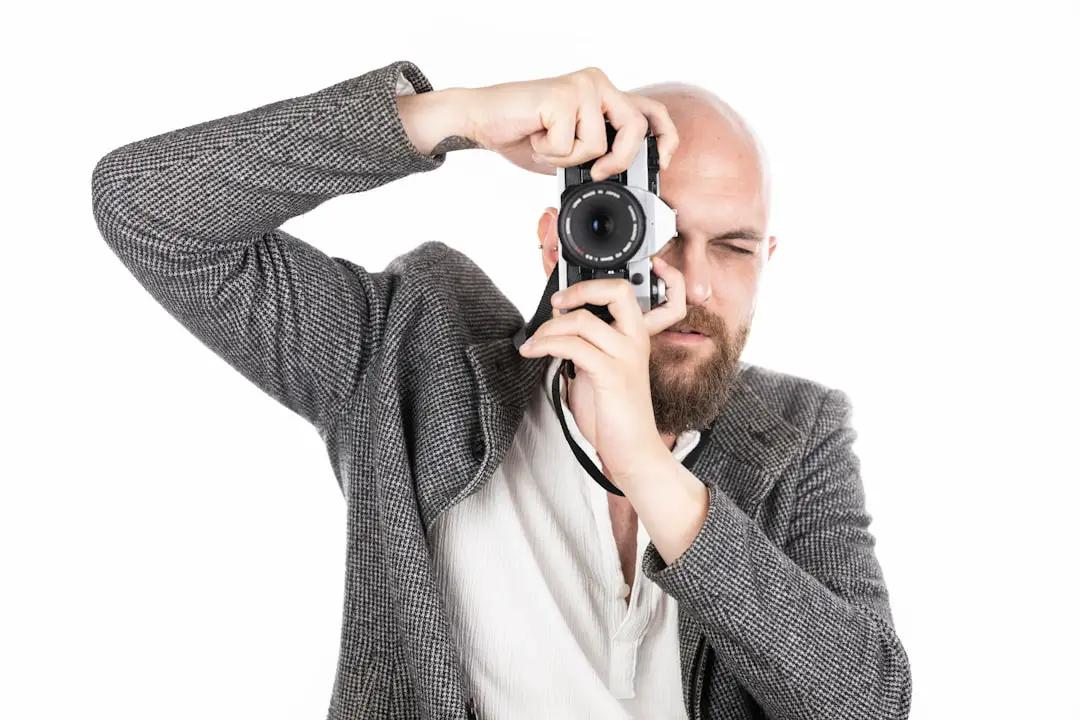
What are the key features to look for in a high-quality camera?
Look for a large sensor size (full-frame or medium format for best quality), high-quality lenses, and a powerful image processor. Features like dynamic range, low-light performance, and advanced autofocus are crucial. For video, consider stabilization and codec options. Ergonomics and build quality also impact your shooting experience.
Read more about “📸 What Type of Camera Is Most Popular? The Top 12 Revealed (2025)”
How do I choose the best camera for my photography needs and budget?
Start by defining your primary photography style (portraits, landscapes, sports, video, travel). Then, match that with sensor size and lens options that fit your budget. Don’t forget to factor in ergonomics and the lens ecosystem for future growth. Renting or trying cameras in-store helps avoid buyer’s remorse.
Read more about “Is Leica Better Than Canon? 11 Must-Know Facts (2025) 📸”
What is the difference between a DSLR and mirrorless camera in terms of image quality?
Both DSLRs and mirrorless cameras can deliver excellent image quality if they have similar sensor sizes and lenses. Mirrorless cameras often have faster autofocus and more advanced video features due to newer technology, while DSLRs offer optical viewfinders and sometimes better battery life. The choice depends more on your shooting style and preferences than image quality alone.
Read more about “What Is the Highest Megapixel Sony Camera? Discover the Top 3 in 2025! 📸”
Do expensive cameras always take better photos than budget-friendly options?
❌ Not always. While high-end cameras offer better sensors, autofocus, and features, skill and technique often matter more than gear. Budget-friendly cameras today can produce stunning images, especially with good lenses and lighting. Invest in learning your camera and post-processing to maximize quality.
How important is lens quality compared to the camera body?
Lens quality is equally or more important than the camera body. A sharp, well-corrected lens can dramatically improve image clarity, contrast, and bokeh. Investing in quality lenses pays off in the long run, even if you upgrade your camera body later.
Read more about “Which Company Gives Best Camera Quality? Top 6 Brands Ranked (2025) 📸”
Can I rely on smartphone cameras for professional-quality photos?
Smartphones have made huge strides with computational photography, making them great for casual and social media shots. However, they have smaller sensors and fixed lenses, limiting creative control and image quality in challenging conditions. For professional work, interchangeable lens cameras remain the gold standard.
Reference Links: Our Sources & Further Reading 📚
- PCMag’s Best Digital Cameras: https://www.pcmag.com/picks/the-best-digital-cameras
- Sony Official Site: https://electronics.sony.com
- Canon Official Site: https://www.usa.canon.com/
- Nikon Official Site: https://www.nikonusa.com
- Fujifilm Official Site: https://fujifilm-x.com
- Hasselblad Official Site: https://www.hasselblad.com
- GoPro Official Site: https://gopro.com/en/us/
- Panasonic Official Site: https://www.panasonic.com/global/about.html
- Facebook Discussion on Trail Cameras: https://www.facebook.com/groups/425871465090480/posts/1294636861547265/
For more expert insights and comparisons, explore our Camera Buying Guide and Camera Comparisons.
